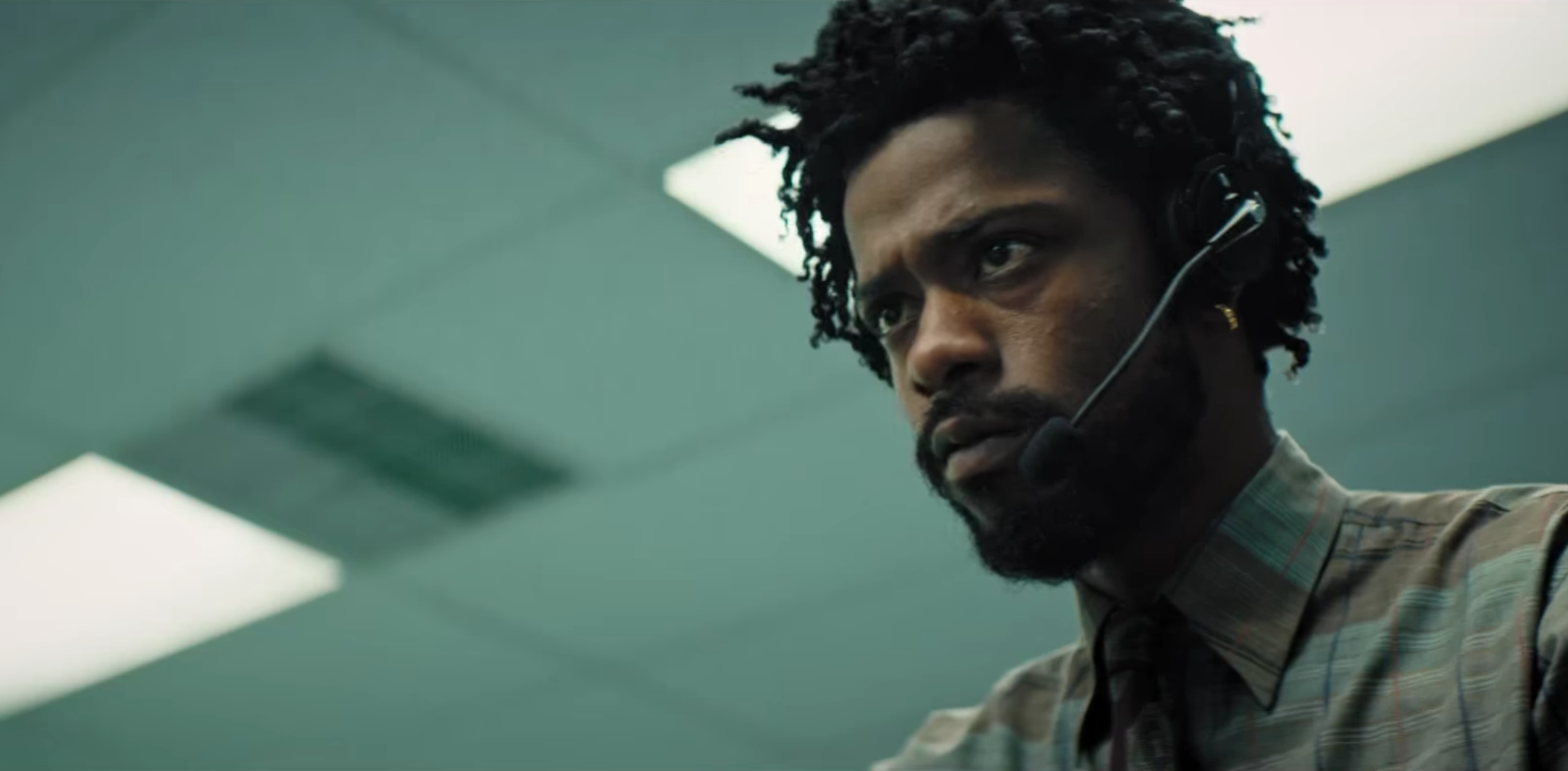Before seeing Sorry to Bother You, I went with my friends to the CityCenterDC Milk Bar a few blocks away from the E Street Cinema.
In there, we talked about how selling desserts called “crack” was probably insensitive when crack cocaine definitely killed and imprisoned thousands of people in America. We talked about how offering straws to drink their shakes out of was bad for the environment.
We talked about these things while drinking $9 milkshakes from thick, colorful straws and talking about how addictive their crack pies are. It’s this paradoxical relationship between social justice and capitalism that Sorry to Bother You tries to tackle.
Boots Riley’s directorial debut is funny, straight to the point, and surreal. The hectic energy you get from the trailer lasts throughout the whole movie — Riley’s directing style makes the movie feel like an hour-and-forty-five-minute music video.
The movie focuses on Cassius Green, played by Lakeith Stanfield, a black man who starts working at a telemarketing company in a last-ditch effort to make some money. Cassius deals with the racial and economic troubles that exist within the magical realist universe he lives in (think Amelie or Being John Malkovich).
At his new job, Cassius learns that in order to succeed, he needs to act white. He puts on a white voice and suddenly starts climbing the corporate ladder, closing more and more sales for his company. He’s told if he keeps it up, he’ll become a power caller and get to make a lot more money.
It’s a not-so-subtle parallel for the American Dream. In the land of opportunity, if you work hard enough, you can become rich enough to support yourself and your family doing anything you want, as long as you’re white.
Of course, your income level at birth is a pretty good predictor of your income level in adulthood, and it’s always been that way in America. This is to say that, for most people, it doesn’t matter how hard you work, you won’t be able to improve your economic standing all that much. Society just sells us the American Dream to get us to keep working.
But Cassius, by acting white and working hard, does make it as a power caller. He then enters the ranks of an elite level of society and the movie becomes more debauched, more like KUSO or Eyes Wide Shut in its surrealism and grotesqueness.
Other than some vignettes (a crowd of white people rapping along to Cassius saying the n-word; 150 million people watching a TV show called “I Got the Shit Kicked Out of Me” like it’s Idiocracy) the movie doesn’t go beyond this skin-deep social commentary, though.
The central concept of the movie — that the American Dream is unrealizable for most people, and especially black people — is all there is. I don’t think there’s anything you’d get from seeing this movie more than once. Everything is spelled out for you.
It’s pro-union, anti-Amazon and anti-Facebook. It’s pro-black, anti-exploitation and anti-slavery. These aren’t exactly hot takes. A majority of Americans are pro-union, and strikes against Amazon are gaining steam both domestically and abroad.
Sorry to Bother You is telling America that big business is exploiting black people and no one is doing anything about it. But there’s no nuance to its message. It’s nothing that you can’t get from a Dave Chappelle bit or an Eddie Murphy skit.
There was no call to action. Gentleman’s Agreement didn’t stop by pointing out that anti-semitism exists in America, it told the audience what to do about it. I wish Sorry to Bother You did more than tell us that inequality exists, which we already know.
It’s a fun movie, but all the subtext is just text. This is preferable to being beaten over the head by heavy-handed extended metaphors, but the movie left me wanting more.
2.5/4 Shells



